Checkout our daily interviews with the directors on the TEDDY AWARD youtube channel
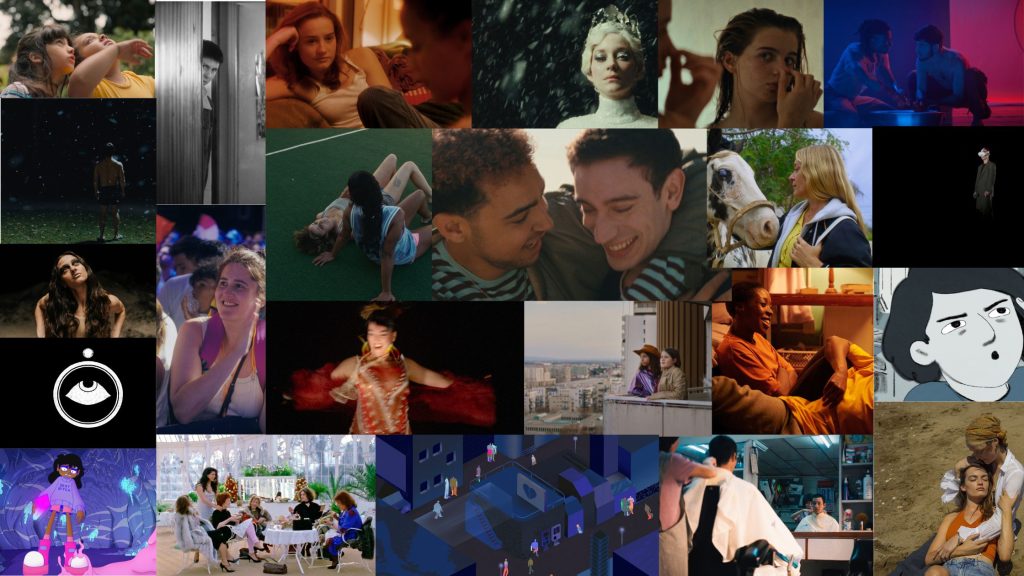
Checkout our daily interviews with the directors on the TEDDY AWARD youtube channel

Welcome back to the second day of the 74th Berlinale and its queer program. Today there are a several premiers of stunning queer films as well as the TEDDY Jury Reception. Find more information about the event by clicking here. Six films are premiering today and we have two great interviews for you.
INTERVIEWS:
“Have you heard the Teaches of Peaches? Don´t miss this tour the force portrait of an uncompromising and unapologetic queer icon. Free yourself and fuck the pain away!”
Seamlessly weaving together exclusive archival gems with dynamic tour footage, this documentary captures the transformative journey of Canadian Merrill Nisker into the internationally acclaimed cultural powerhouse that is Peaches.
Premiere: 21.02 / 21:30 Zoo Palast 1
🎥 22.02 / 18:30 Cubix 9
🎥 23.02 / 12:15 Verti Music Hall
Click here to learn more about the film!
“In this deeply moving film about loss and collective grief, Berlin’s queer community raises awareness about the ever growing issue of substance-related deaths in the scene. An emotive and urgent piece of filmmaking.“
Berlin queer community members mourn the substance abuse-related loss of their friends by sharing memories and rituals. Resembling glow-in-the-dark fungi, they radiate light together as a network of support and care.
Premiere: 16.02/ 16:00 Kino Arsenal 1
🎥 17.02/ 21:00 Kino Betonhalle@Silent Green
🎥 22.02/ 19:30 Kino Arsenal 2
🎥 22.02/ 19:30 Cubix 7
🎥25.02/ 19:00 Kino International
Want to learn more about this film? Click here!
PREMIERES:
Directed by: Ray Yeung
Hong Kong, China, 2024, 93′
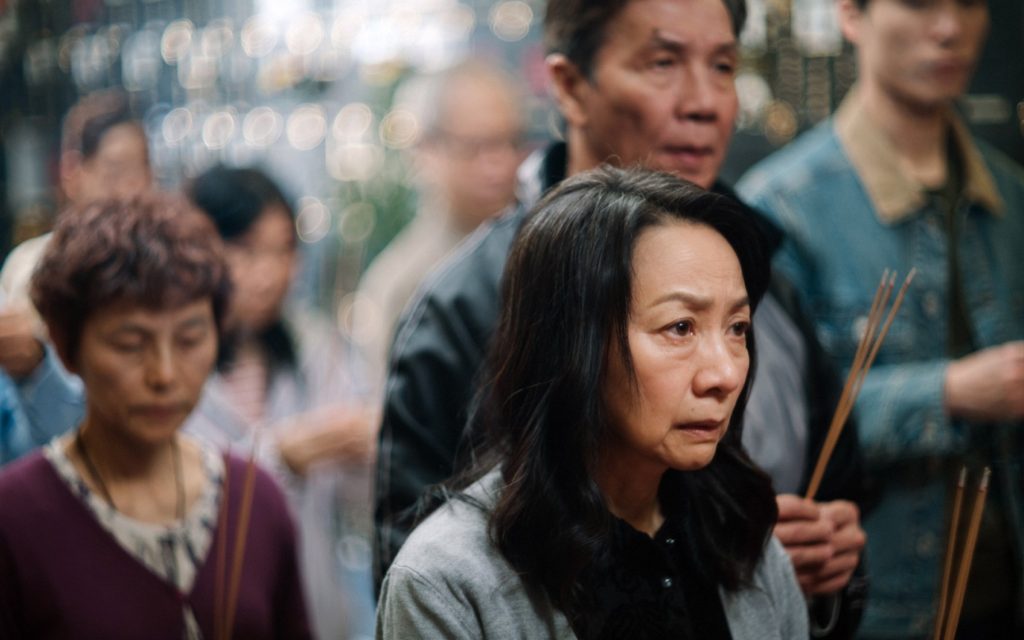
When her partner Pat unexpectedly dies, Angie is left to worry about the flat in which the couple lived together for over 30 years. Supported by her chosen family, Angie begins a later-life journey into emancipation.
SCREENING TIMES:
16.02. / 19:30 Kino International
Directed by: Tilman Singer
2024, Germany, USA, 102′
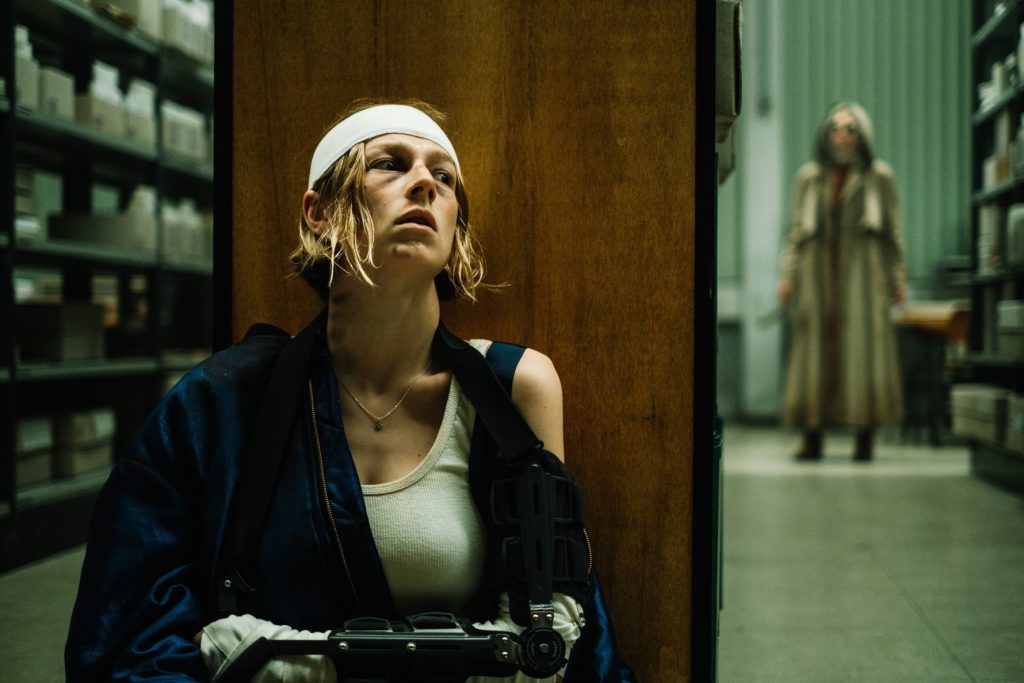
Gretchen travels to the German Alps with her father and stepmother. In the resort town where they are staying, she comes across some
dark secrets. She hears strange noises and is plagued by frightening visions of a woman chasing her. Gretchen is drawn into a
conspiracy involving bizarre experiments by the resort’s owner that echoes back generations…
SCREENING TIMES:
16.02. / 21:00 Verti Music Hall
detours while speaking of monsters
Directed by: Deniz Şimşek
Germany, Turkey, 2024, 18′

Here, where even monsters are political, the topography has its own memory. It has the mythological blues. Meanwhile, old gods are upset with us, and I am upset with my father.
SCREENING TIMES:
16.02. / 16:00 Kino Arsenal 1
Directed by: Zuza Banasińska
Netherlands, Poland, 2024, 23′
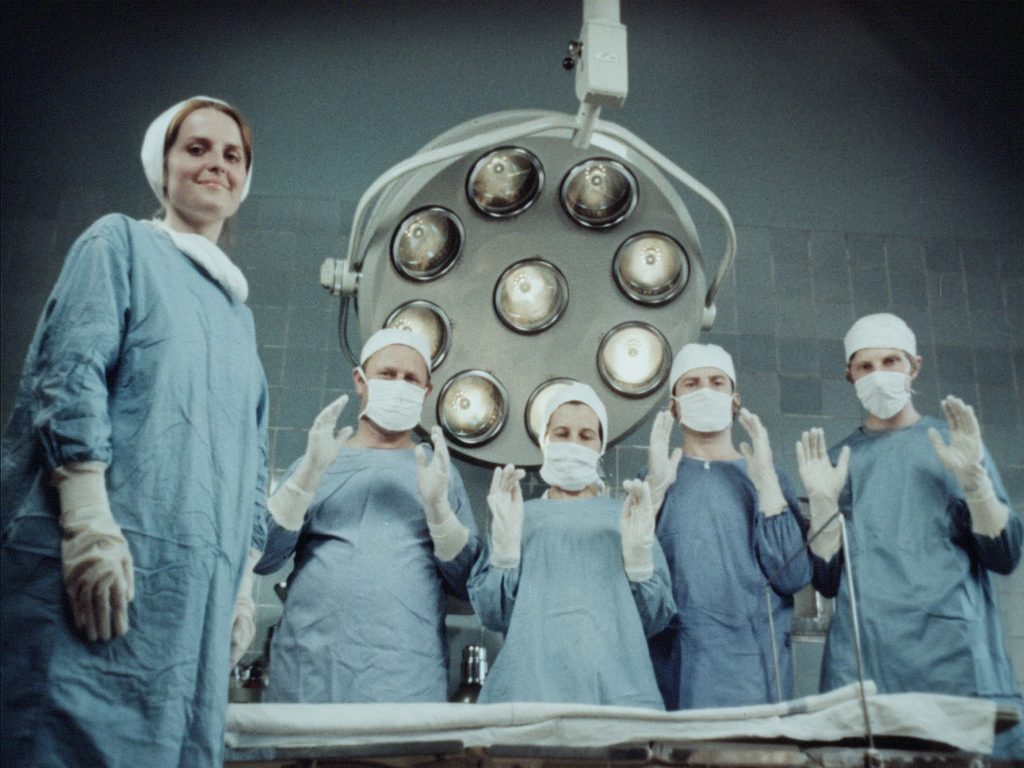
Created from archival materials from communist Poland, the film tells the story of a multispecies matriarchal family through the eyes of a child grappling with the reproduction of ideological and representational systems.
SCREENING TIMES:
16.02. / 16:00 Kino Arsenal 1
I Don’t Want To Be Just A Memory
Directed by: Sarnt Utamachote
Germany, 2024, 20′
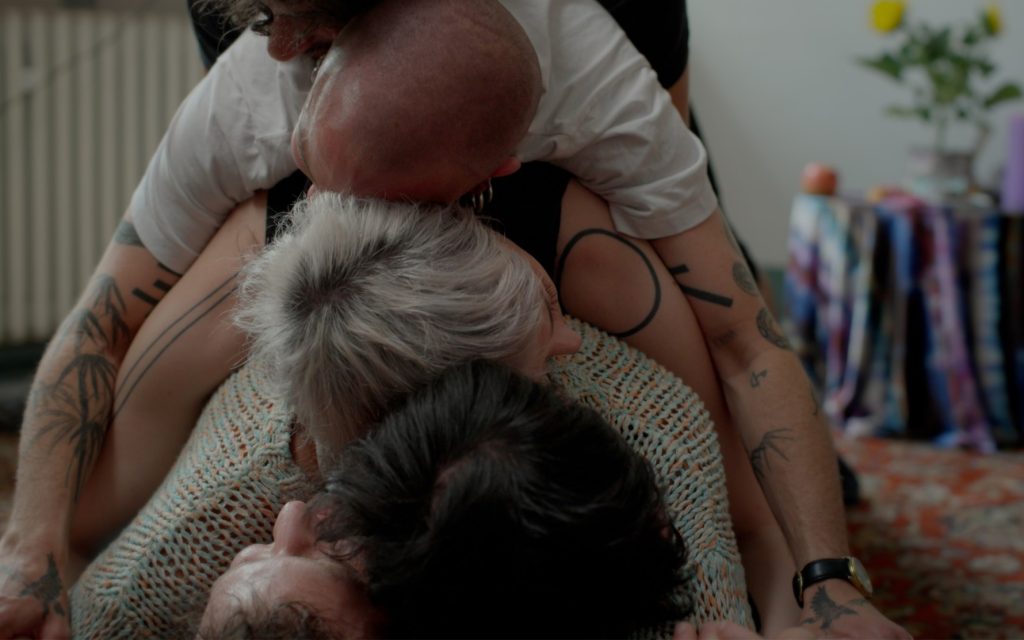
Fellow members of the Berlin queer community mourn together the loss of their dead friends due to substance abuse and the mental health crisis as well as the loss of urban safe spaces in general. By sharing personal materials, stories, and honest criticism about the club scene, working on this film becomes a means of healing for this group of friends. Resembling glow-in-the-dark fungi, they radiate light together as a network of support and care, they transform dead bodies and memories into a collective structure that sustains future living..
SCREENING TIMES:
16.02. / 16:00 Kino Arsenal 1
Directed by: Soleen Yusuf
Germany, 2024, 119′
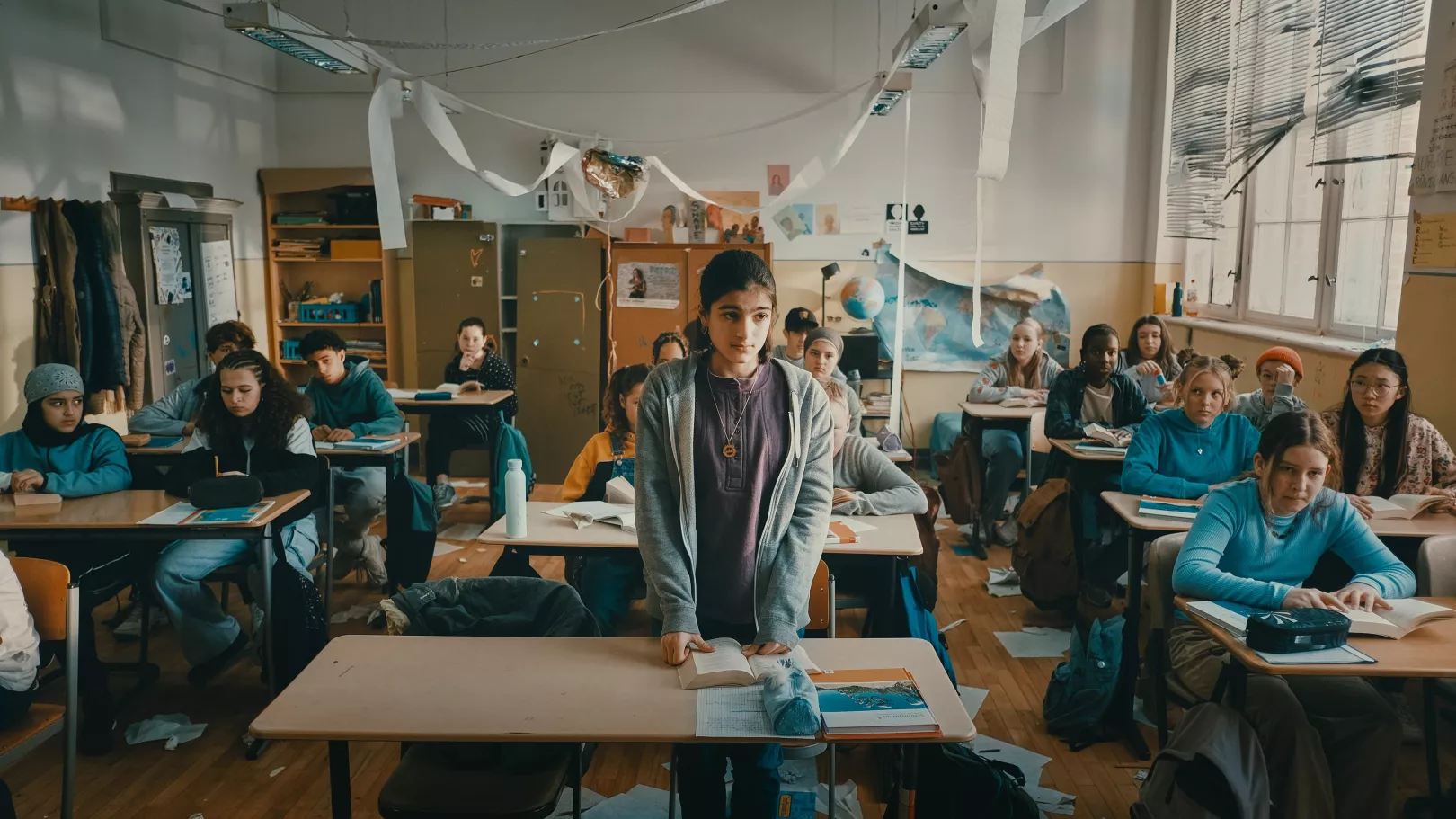
Eleven-year-old Mona and the rest of her seven-member Kurdish family have fled Syria and ended up in Berlin. Or, more precisely, the
neighbourhood of Wedding where Mona is sent to a notorious primary school attended by 90 percent “foreigners”. Chaos reigns in the
school. Most of the teachers are having a nervous breakdown and frustration levels amongst the pupils are growing by the day. Mona
feels it, too. She can barely speak German, but she can speak football. In her hometown, she often played street football with her mates.
She misses her home, her friends and especially her aunt Helin. She was Mona’s hero who always supported her passion for football.
Everything is different in Germany. Then a dedicated teacher called Mr Che recognises Mona’s special talent and selects her for the
girls’ team. But this well-intentioned gesture fails to make things any easier. Mona is quickly identified as an outsider and playing in a
team with the other girls turns out to be more difficult than expected. Each of them is fighting their own battles but one thing soon
becomes clear: they will only win if they all play together.
SCREENING TIMES:
16.02. / 15:30 HKW 1 – Miriam Makeba Auditorium
RERUNS:
Crossing
16.02. / 12:00 Verti Music Hall
We did an Interview with Dr. Benno Gammerl, historian at the Max Planck Institute for Human Development in Berlin.
The dire situation and struggles of men desiring other men during the 1950s and 1960s has only recently attracted attention. They had long been forgotten, in many ways, because of the bad press, given to the”Homophiles” of the postwar decades among the spokespeople of the gay movement. The legal development in the East and the West between 1945 and 1969 has now been at least broadly documented; the same thing can be said about the structures behind police persecution and the non-recognition of homosexual concentration camp prisoners as victims of the National Socialist regime. The political efforts of the “homophiles” for recognition and decriminalization, and above all, the stories of everyday men who loved other men remain undocumented and under researched though: How did they deal with persecution and discrimination? In spite of it all, how did they manage to establish subcultural structures? How did homophile life and same-sex desire blossom between fears and hopes, platonic marriages (Josephsehen), train station bathrooms, prison cells, and theatre lodges?
It is wonderful that the general criminalization of same-sex desire and the Nazi enhanced version of § 175 -enabling the intensification of homosexuals’ persecution in the Third Reich and in the early Federal Republic- are finally officially branded as a fundamental violation of human rights. The contribution of Christine Lüders, head of the Federal Anti-Discrimination Agency, to decisively advancing this debate really deserves appreciation. This gives the Rechsstaat (Rule of Law) an opportunity to develop a critical perspective on its own history, and to distance itself from the injustice that has been committed. Furthermore, the men who have been condemned can hope for reparation – albeit amply late. However, Paragraph 175 was the source of great harm beyond prison sentences. Relationships were broken, people were denounced, violent attacks were not uncommon, and some victims saw suicide as the only way out. How are the legislators going to compensate for this amount of suffering for which they ultimately bear responsibility?
I think, and maybe it is more of a hope, that the overwhelming majority of the German public would consider the criminalization of same-sex desire as morally unjustifiable today. To this extent, the political debate on rehabilitation is a result of a switch in opinion that has taken place over the past thirty years. It sometimes surprises me how few people know that the decriminalization of homosexualities is actually an achievement of the late GDR where unequal criminal treatment of same-sex desiring people ended in 1988. The Bundestag did only agree to finally abolish Paragraph 175 in 1994 when the West and East German penal Law were merged. Truly, not a glorious chapter in the history of the Federal Republic.
We did an Interview with Dr. Nina Reusch, historian at the Friedrich-Meinecke-Institute in Berlin and member of the Public History Project “LSBTTIQ in Baden-Württemberg“
Since the 1970s, considerable research has been done in the context of the homosexual emancipation movement. In the meantime, the subject is becoming more and more important in the academic circles as well, which is good not only for research, which can be broadened and diversified, but for the discipline of History as well, engaging now with queer questions and research topics.
Overall, queer history is not included in the in German schools’ standard curriculum, but there are various projects that can be used as a starting point. Here, in Berlin, February is always the Queer History Month; during this time some school classes engage with queer history and other queer-related topics in terms of content or art. The project’s homepage offers lessons and materials for teachers who would like to bring queer topics into history lessons. Beyond school, public history projects also bring queer history to a general audience – such as the exhibition ‘Homosexualities’ in the Schwulen Museum* and the Deutsches Historisches Museum, or, as it is currently in Baden-Württemberg, Public History connects queer history to research projects. Last year, a project was launched that brings together research, public history and regional queer history creating opportunities for a greater participation.
The rehabilitation of men who were convicted under paragraph 175 is a much welcomed and almost overdue project. A reasonable compensation for the victims of this homophobic legislation should also be implemented.
I think that before the announcement by the Minister of Justice, many people were not even aware that homosexual relationships among men were prosecuted for so long in the Federal Republic. The discussion has created a certain awareness and therefore it should be welcomed.
In 2016 the TEDDY AWARD celebrates its 30th birthday and therefore we did interviews with the previous Teddy winners. They talk about the conditions in which queer people lived at the time their movie won the award, about the impact the TEDDY AWARD had on their lives as well as on their art and how winning the award changed the perspective on LGBTIQ-people in their country.
Tilda Swinton
Special Teddy Award Winner 1988 and 2008
James Franco
Teddy Award Winner 2009 for The Feast of Stephen
Daniel Ribeiro from Brazil
Teddy Award Winner 2014 for The Way He Looks
Jim Chuchu from Kenya
Teddy Award Winner 2015 for The Stories of Our Lives
Barbara Hammer from the USA
Teddy Award Winner 2009 for A Horse Is Not A Metaphor
and 2011 for Maya Deren’s Sink
Ayat Najafi from Iran
Teddy Award Winner 2008 for Football Under Cover
Greta Schiller from the USA
Teddy Award Winner 1984 for Before Stonewall